The constitution is accepted as a national document in different societies, also due to its legal importance and generality for different times, this document should be strong enough so that rulers cannot change it easily.
On the other hand, the impossibility of making any changes in the constitution may reduce its ability to solve the problems of society according to its various needs. For this reason, usually, the way to review, amend, complete, change, and cancel the Constitution should be foreseen in it.
Therefore, since the victory of the Islamic Revolution in 1979 until today, the constitution of the Islamic Republic has always been amended and revised based on the requirements of the time, same as the election laws.
Revision, amendments of Iran's Constitution
The Constitution of the Islamic Republic of Iran, which was approved by the people in the referendum on the 2nd and 3rd of December 1979, was comprehensively revised 10 years later and was approved by the people in a referendum.
The historic letter of Imam Khomeini (RA), the founder of the Islamic Republic of Iranvolution, in the same year's month of May, provided the basis for the revision process.
With the formation of a constitutional revision council and the approval of the internal regulations in its fourth session, the process of revising the Constitution officially began and quadruple commissions were formed, among which the fourth commission undertook its planning. The result was the addition of Chapter 14 entitled Revision of the Law and under it Article 177 to the main text of the Constitution, which explained the details of this revision.

Since the constitution approved in 1979 was compiled and approved quickly by Imam Khomeini (RA), there is no doubt that due to the speed of action in the preparation and approval of such a basic law on which all affairs of the country are based, the existence of some problems in it could not be something impossible.
Finally, a decade later, after the end of the war imposed by Iraq against Iran, a suitable and favorable ground was provided for changes in the Constitution when Imam Khomeini (RA) issued a decree to review, and demand changes and reforms in the constitution. After that, all concentrations were focused on the administrative structure of the country, and the last chapter of the Constitution was devoted to revision, and the 177th principle was included in the Constitution as the principle of revision.
Two-dimensional view regarding revision and reform
1. General revision: In some constitutional laws such as in Switzerland, Spain, and South Korea, general revision has been accepted and if the people want, they can revise the entire constitution. Although the general revision of the constitution has been recognized in some laws, it has not been implemented in practice in any country so far.
2. Detailed revision: In a detailed revision, the scope of the revision is limited and cannot cover all the principles at once. Mainly, the principles are revised, but due to the importance and special position of the members of the political society, some of those principles are suspended, limited, and temporarily excluded from its scope. This type of revision is included in the Constitution of the Islamic Republic of Iran, an example of which can be seen in the reforms and revisions related to elections.
Reforms, revisions in electoral laws of the Islamic Republic of Iran
As mentioned, the inclusion of a partial and limited revision in the Constitution has always paved the way for reforms in the electoral laws in the Islamic Republic of Iran.
As an example, the presidential election is of great importance due to the important position of the president in the political system of Iran, as well as the president's powers and duties, thus the creators of the electoral system have also paid special attention to this issue.

The Iranian presidential election law was approved on 26 June 1985, which has been changed and amended three times so far. The first amendment was made on 16 November 1986, and the second and third on 6 April 1993, and 18 May 1993 respectively, i.e. on the eve of the sixth presidential election.
Also, the executive regulations of this law, which was first approved by the cabinet on 7 July 1985, were amended twice on 21 April 1993 and 12 May 1993 and changes were made to it.
Just as the amendment of the election law has existed in the field of the presidency for several decades, this revision is also visible in the field of the Parliamentary election in Iran as well.

As an example, early this year, after lots of efforts, the Iranian parliament members finally approved the 57-article plan Amendment of the Election Law of the Parliament by taking into account the general election policies announced by the Leader of the Islamic Revolution. So, this year's election is scheduled to be held based on the new law.
Of course, the Supreme Supervisory Board of the Expediency Council, which examines the parliament's approvals in terms of compliance with the general policies of the Islamic establishment, found objections to Article 53 of the proposed amendment of articles related to the parliamentary elections law regarding the holding of proportional elections in Tehran. The parliament insisted on its resolution several times, but finally, in the open session on 23 July 2023, the parliament removed the issue from this plan.
Critics emphasized that the proportionality of the elections should make it possible for the representatives whose list did not win the maximum number of votes to be present in the parliament.
Furthermore, the registration for the 12th Parliament elections started on Thursday, 19 October 2023, while the new changes to the Parliament election law were applied both in the registration phase and in the qualification review phase with the aim of protecting the rights of the candidates. For example, registrations in this course were conducted in 2 stages and completely online.
At this stage of registration, the candidates should present documents of having five years of executive, educational, and research records. This is a new condition for the candidates in this year's parliamentary election. One of the other important changes was the necessity of online registration and the elimination of face-to-face registrations and going to the election headquarters of the Ministry of Interior.
In addition, the law on transparency and supervision of the financing of electoral activities in the parliamentary elections is also among the new laws. The implementation of this law aims to trace the origin and amount of funds brought by the candidates.
To be continued...
MNA



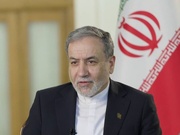
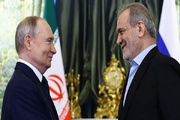



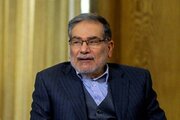


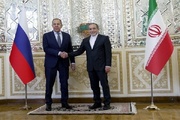
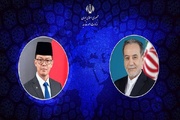





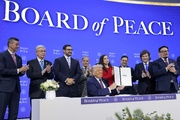

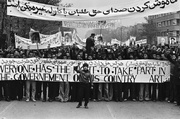
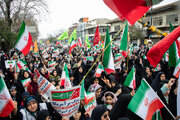
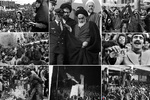
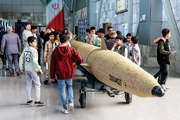
Your Comment